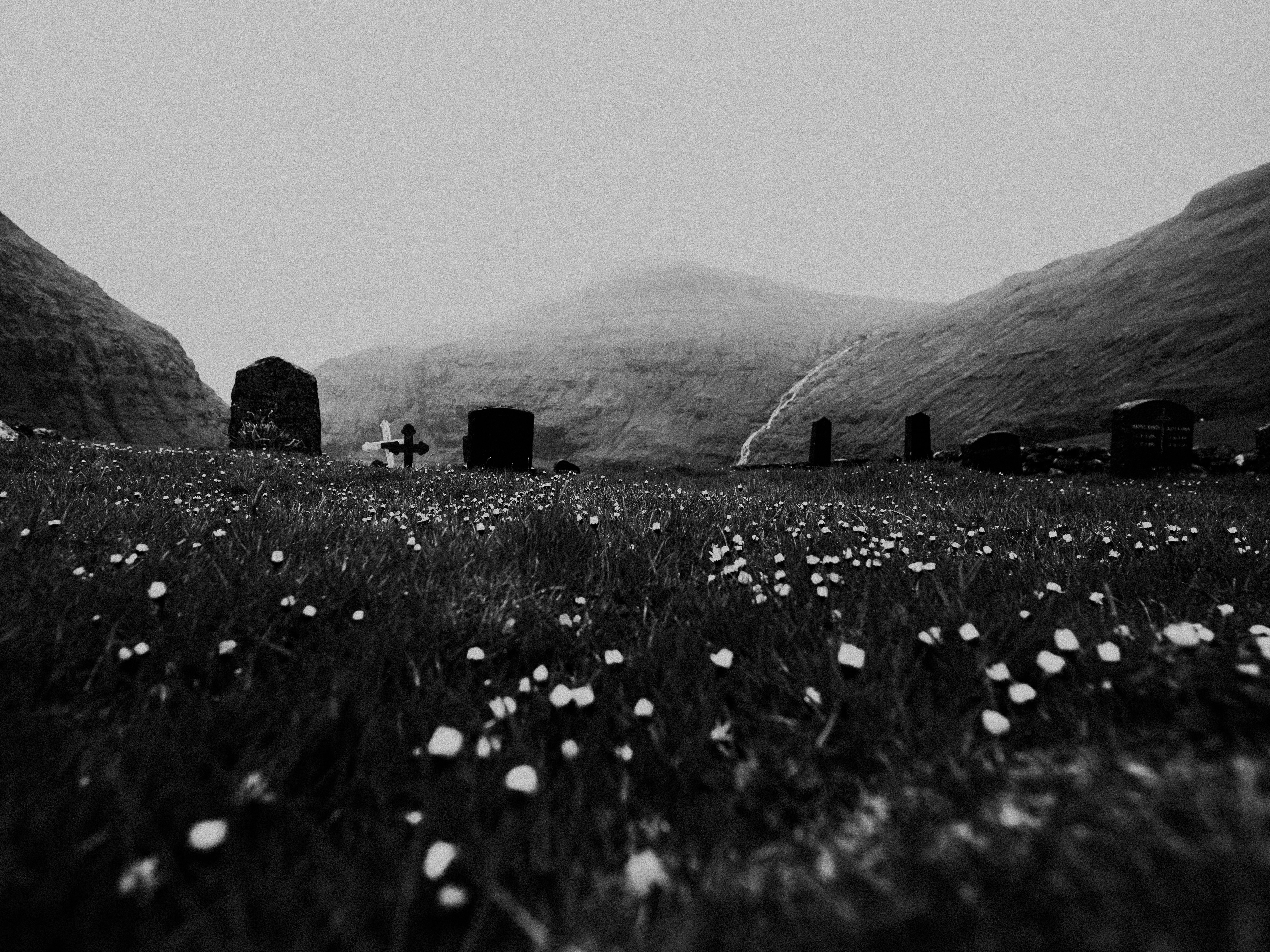
Prompt Images
During graduate school I spent a few months living in Kenya. Though I usually took the bus back from the center of the city to the neighborhood where I stayed, I occasionally walked instead. On this long walk I passed everything you could imagine – markets, restaurants, schools, seamstresses, animals, and parks. Everywhere around me people vibrantly lived their lives, and I soaked in all the sights, smells, and sounds with gusto. On one of my first walks I remember wandering among the many vendors lined up alongside the road until I came upon the coffin merchants.
Efficiently placed, the coffin merchants were located just outside the gates of the hospital.
Let me say that one more time: The coffins were right outside the gates of the hospital. Yikes. The coffins were stacked and ready to be purchased, while the carpenters worked away at constructing new ones on the spot. Of course the placement of these merchants is probably no stranger than driving past a funeral home next to a strip mall in the States, but seeing them so blatantly out in the open shocked me. It was an overt admission—“people die here”—and business opportunity without any attempt to soften the blow with distance.
Never before was death laid out quite so bluntly for me to see. Never before was death so included in everyday life.
For I am from a culture where death is treated as something you could possibly escape.
With enough money and the proper 401k, we are meant to believe that we can financially plan our way out of the inevitable. Aging may be the enemy, but death is still a rare tragedy and one that happens only to other people. Americans are terrible at talking about death because in doing so we could realize all that we have to lose. And many of us would go to great lengths to avoid thinking about it. Honestly, I am surprised you are still reading this.
To escape our inevitable end, we make up fairytale plot lines, read fantasy, and binge Netflix nonsense. I love a good story more than anyone, but if you really think about our reality, it is more surreal than any great writer’s imagination. And one that is very hard for us to process.
Our reality that we live with everyday is that at any moment, we or someone we love could disappear.
We will all disappear eventually and our lives will be shaped by the disappearance of those that we love most. With this reality, it is a wonder we all get out of bed in the morning.
I say this not in any way to minimize the magnitude of death and loss but to point out the absurdity of my shock in seeing those coffins. And to acknowledge that the human experience is one of heartbreaking irony of both individual and collective love and loss.
There is nothing more human than death, and yet it can feel quite isolating.
Similarly to our avoidance in talking about the messiness of how we come into the world (seriously guys – it’s messy), we neglect acknowledging the messiness of dying and the non-linear ebb and flow of grief.
I am certainly no expert but working with people who have gone through conflict gave me some small insights into death and the trauma it causes the living. It has been difficult to figure out how to fit back into a culture that treats death like an uncommon misfortune. In addition, going through my own loss of people I loved and observing just how much their deaths have shaped my life has affected how I approach living.
When you think about death so much it can be hard to figure out life.
Initially, learning so much about death made me live in a way that was more impulsive and opportunistic. It drove me to take big risks, travel to far places, and reject the notion of putting anything off. Of course this meant I made decisions that did not take into account my financial future. And I definitely did not date the right men. Eventually, though, you come down off your adrenaline high and wonder how to create a more sustainable way of life.
Still though, I was cautious with my lofty plans because I was hyper aware of how much uncertainty exists. I thought it was naive to put so much time and energy into a future that was not certain when you could only control what was in front of you. But this cautious in between kind of existence is not really living either.
What I have found is that living and making plans for a long life, even though you don’t know what is going to happen, is a profound act of courage.
Some days I am more courageous than others. But somehow we must try and balance living in the moment and taking full advantage of opportunities that come our way while also building something with our eyes toward the future. Planning is an act of bravery because try as you might you never really know what is coming.
The past eighteen months have brought a new level of uncertainty to the forefront with the disappearance of over 4.5 million humans (and counting) due to COVID. Loss is all around us, even if acknowledging it is too much for many people to bear. Just look at the lengths people will go to in an effort to escape the truth of what is happening.
Many times, we would rather delude ourselves than see the reality of our fragility, vulnerability, and just the overall uncertainty we face.
Even if you have not been touched directly by loss in this pandemic, we are all dealing with some kind of disappearance. Overnight, people have lost their entire country to the Taliban, their homes to fires or flooding, and their businesses to bankruptcy. Each day we are faced with a new crop of potential disappearances.
So, peeps, how exactly are we supposed to do this? How do we wake up each day and face this crazy reality without it crushing us? I do not know the answer, but I can only take inspiration from the people I saw who walked by the coffins everyday. People who are loving and living with the knowledge that the coffins are part of it.
We essentially have to face it.
So what if we try an experiment? We stop screaming at each other for a few minutes and acknowledge the loss, pain, and grief that is all around us. This pause in scapegoating and numbing our pain could give us the capacity to do some hard but remarkable things: to accept the inevitability of our imminent disappearance and to bravely get up each day to try our best at living.



